Let's Talk Garbage
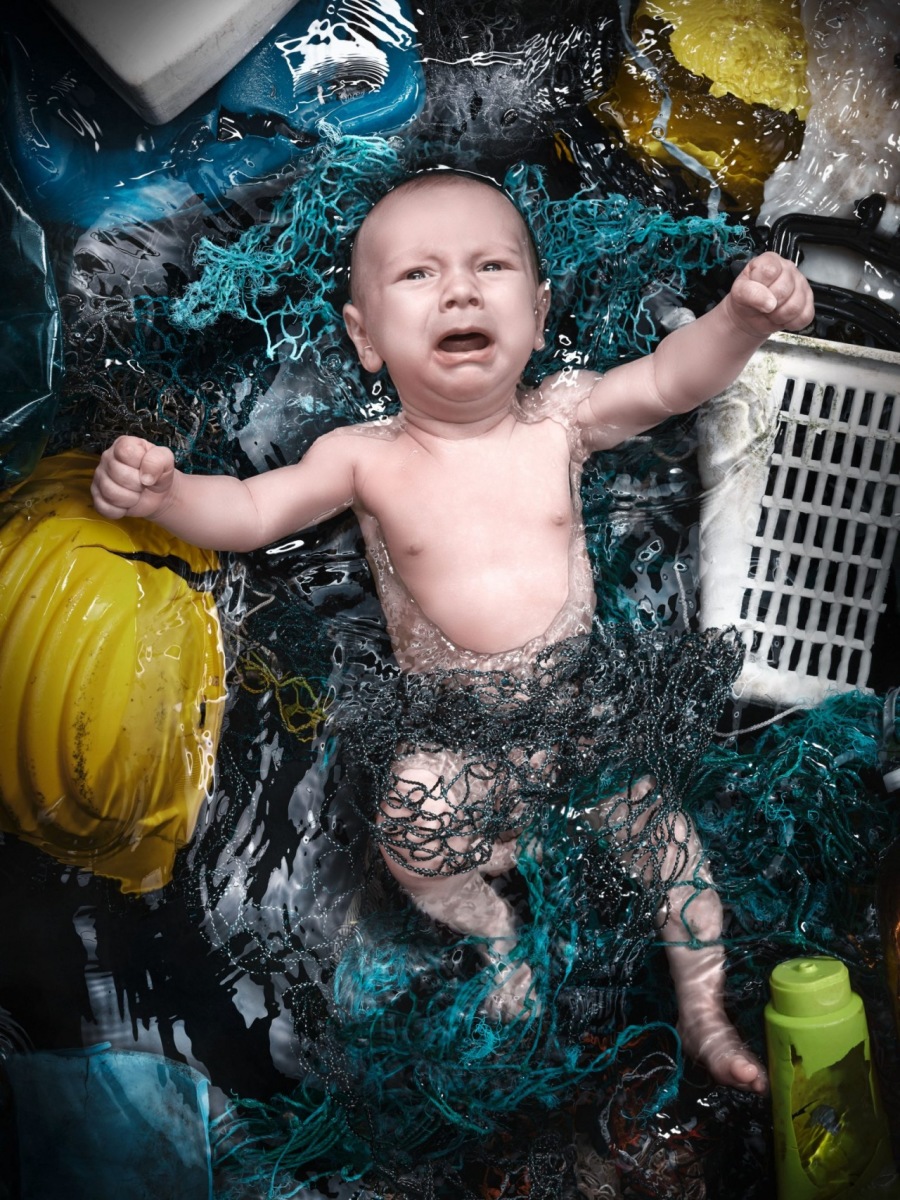
No, I'm not suggesting that we bad-mouth, belittle or disparage each other by talking trash figuratively, metaphorically or even synecdochically [look it up]. I'm suggesting that we literally have a chat about garbage, in its most massive, buoyant and particulate form, as found 'all-at-sea' (again literally not figuratively) in a series of POPs.
Now I can see I've really confused you with the abbreviation POP.
By POP I don't mean:
- the latest flavour of the week's 'pop' or popular music, being blasted in your ear by radio jocks;
- Post Office Protocol;
- A not too loud bang - as in 'pop' goes the weasel, 'pop' your cork, or 'pop' that balloon;
- The 'old man' - as in, "Can I borrow the car tonight, pop?";
- A soft carbonated drink - as in soda 'pop', at least one of which brands was reputedly alleged to dissolve steel nails;
- A sugary tooth decay propogant such as ice pop, lollipop or popsicle; or
- Persistent Organic Pollutant (although this one's getting close).
Some of you more environmentally aware citizens who are reading this may have already guessed that I'm talking about Plastic Ocean Patches of Garbage, or just Garbage POPs.
But before we talk Garbage POPs, let's talk ocean currents or gyres (see figure below).
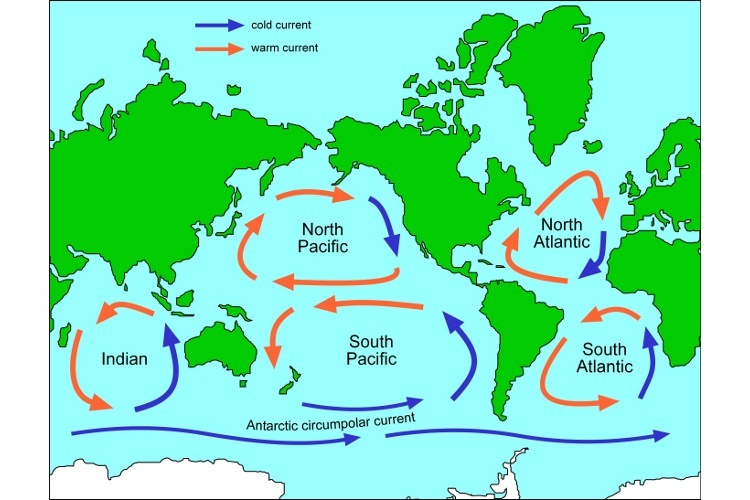
There are five major circulating ocean current systems, or gyres, located as shown above. These swirling gyres circulate around large areas of calm water. When our various accumulations of garbage, over many years, end up in our oceans or are dumped at sea, it follows that they will eventually be directed towards the centre of the gyres and become contained within these relatively still central ocean waters, resulting in garbage patches or garbage POPs. Each of these individual gyres has a sizeable garbage patch close to its centre, but the most significant POPs are found in the Indian Ocean, North Atlantic Ocean and North Pacific Ocean, the largest being in the latter. This monster is generally referred as the Great Pacific Garbage Patch (look it up), but let's you and I call this the Great Pacific POP.
How Do POPs Form?
It appears (from this link and many similar others) that these POPs take a long time to form, starting with flotsam and jetsam, either carelessly discarded into our streams and rivers, or dumped from ocean-going vessels. This marine floating debris is then moved along by coastal currents (as outlined above) and then picked up by gyres (see also above), circulating until it makes its way to the centre where the POP forms as an ongoing entrapment, ever increasing in size.
What's in these POPs?
How Big is the Great Pacific POP?
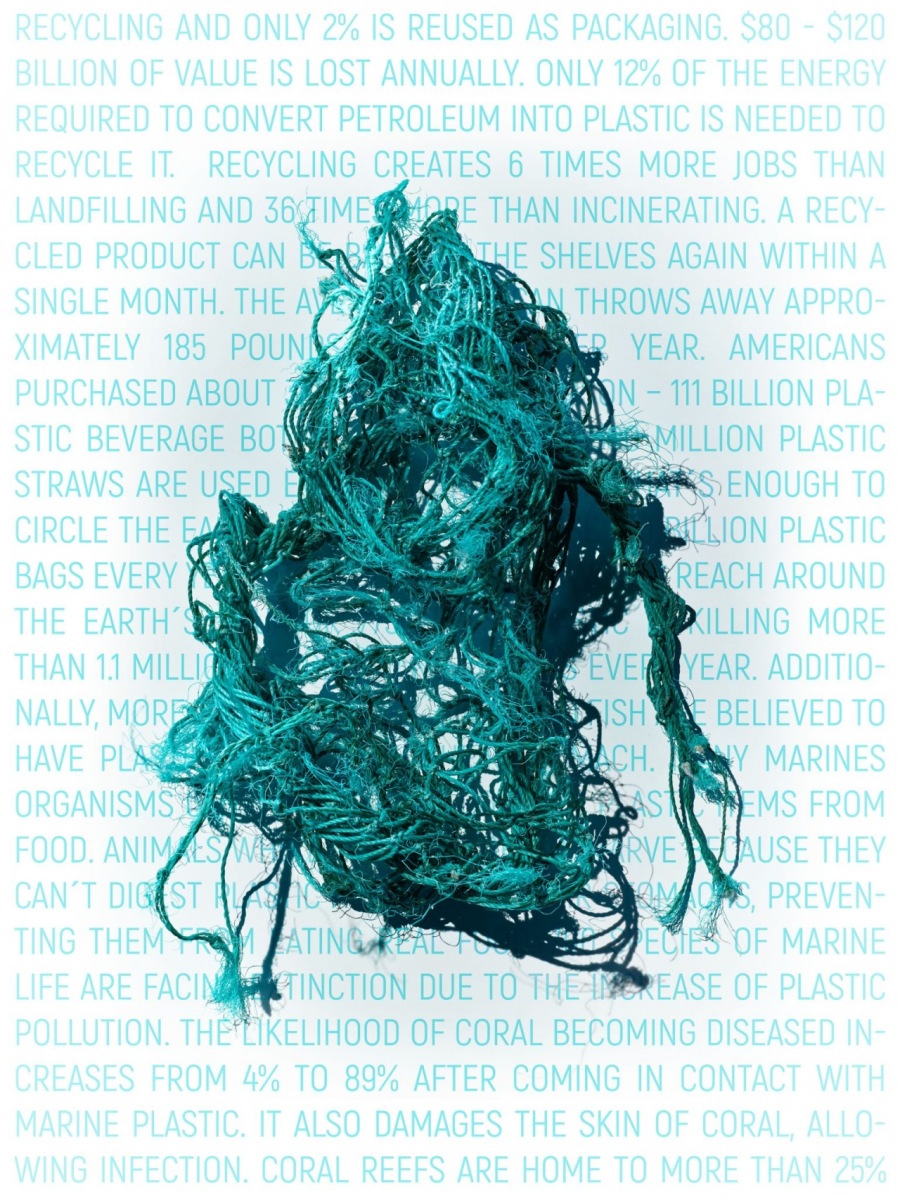
Why the Enviro Big Deal?
Would you like some PBT with your fish and chips, madam?
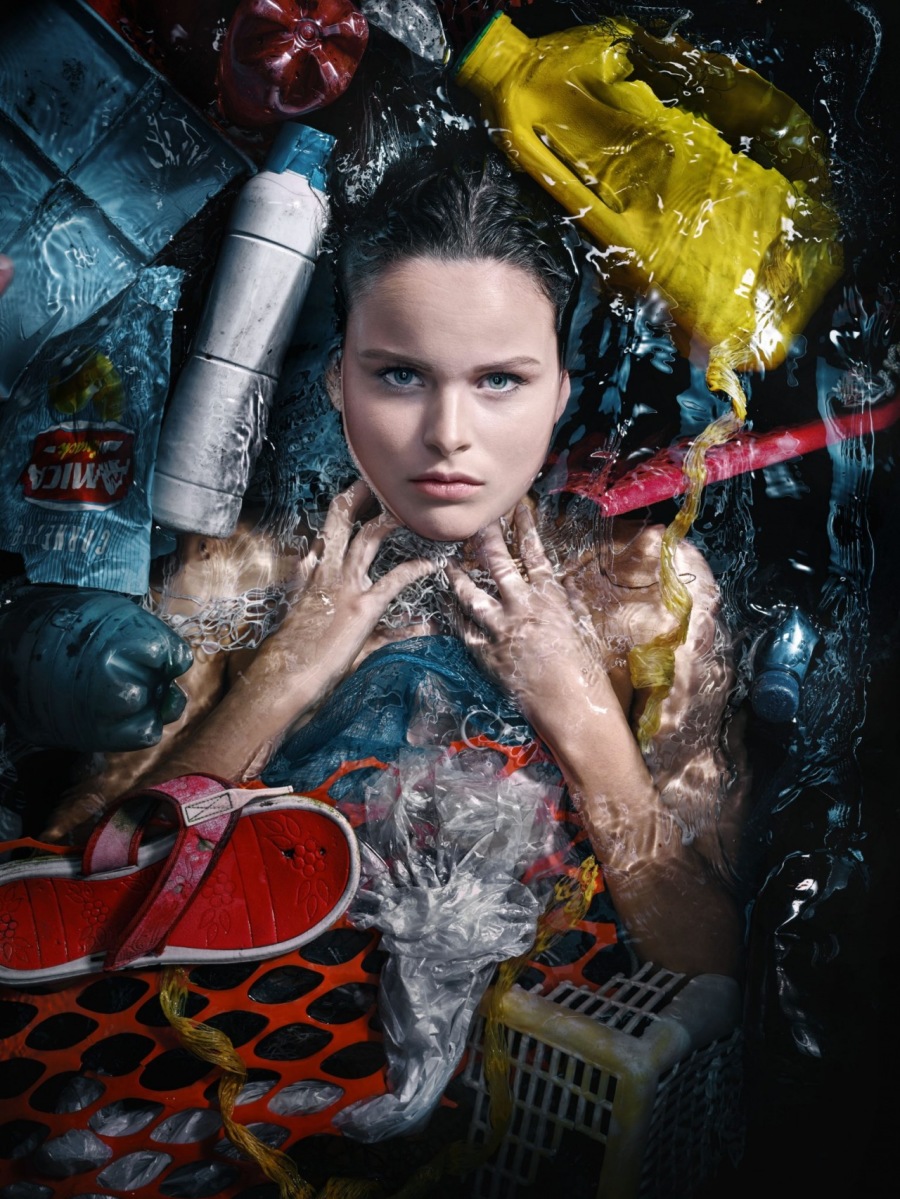
Who's Responsible?
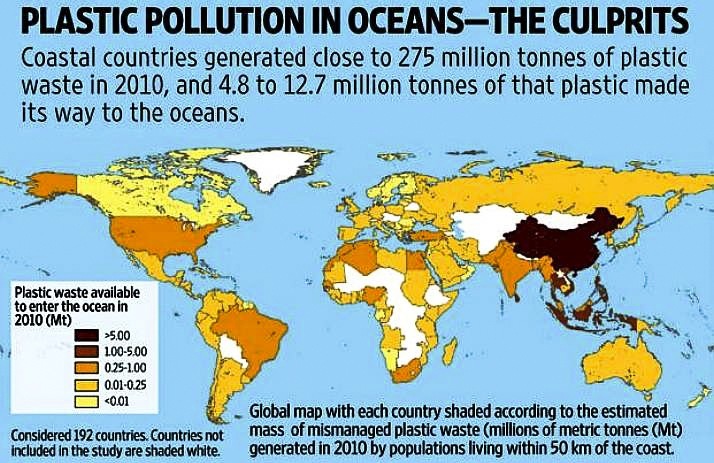
What Can You or I or Anyone Do?
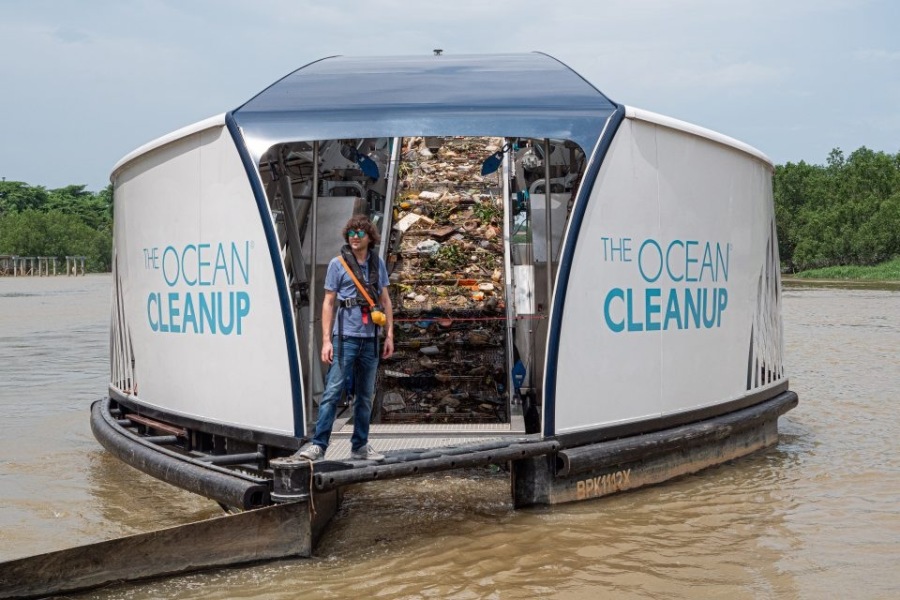
- Step 1 - Be the change you want to be in the world - make a commitment and pledge to reduce single-use plastic in your everyday life.
- Step 2 - Influence others - inspire your local business, club, groups, workplace to come on board and stop single-use plastics in the community.
- Step 3 - Think BIG! Go straight to the top! Help bring governments and big business on board to create a plastic free nation.
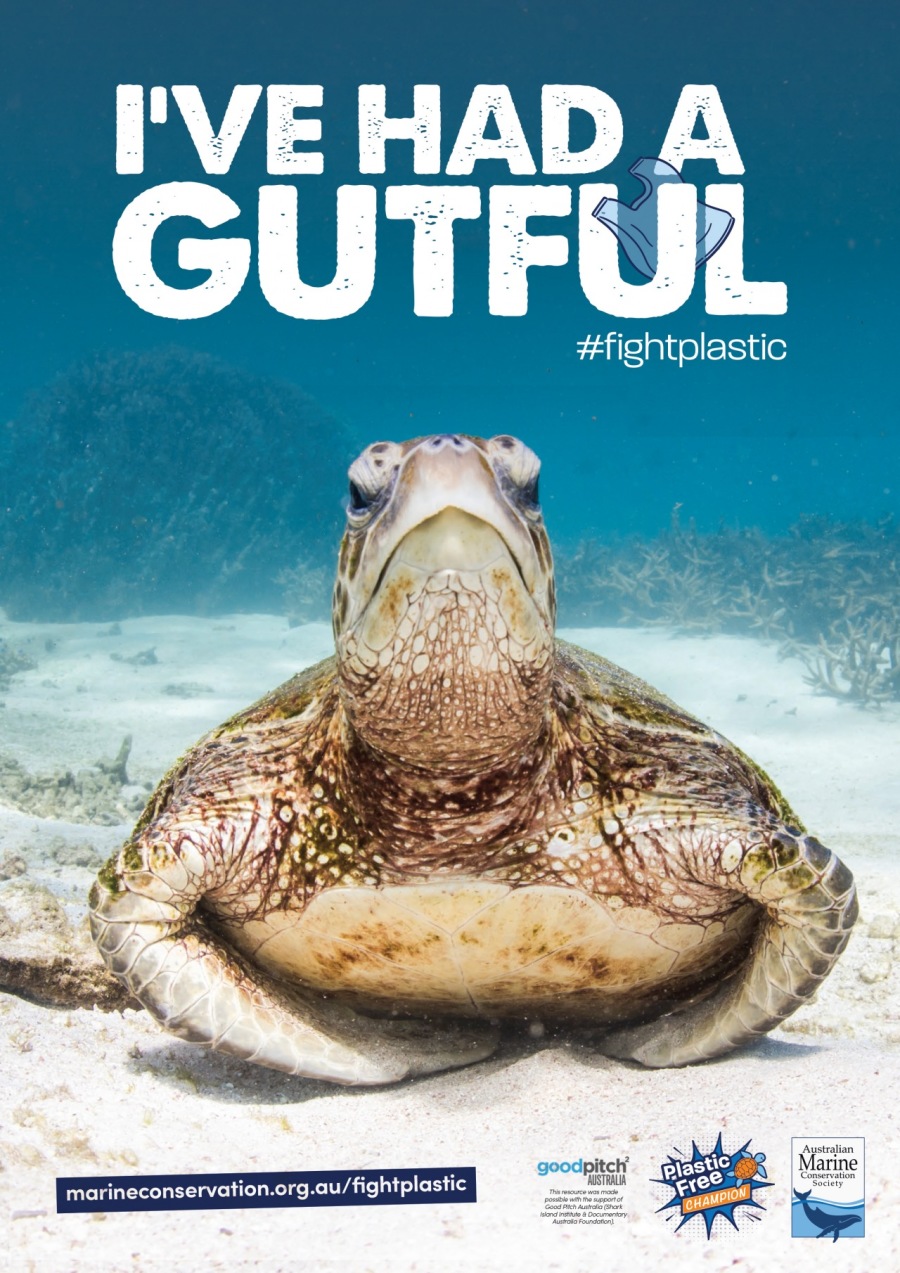
"Together we can turn the tide on plastic pollution. We must choose to refuse plastic, and at the same time stop it at the source. As stewards of an incredible marine natural heritage, Australia can and should be a world leader in stopping plastic pollution. Australia must lead by example and change our domestic plastic consumption and help our neighbours to do the same."
Australian Marine Conservation Service
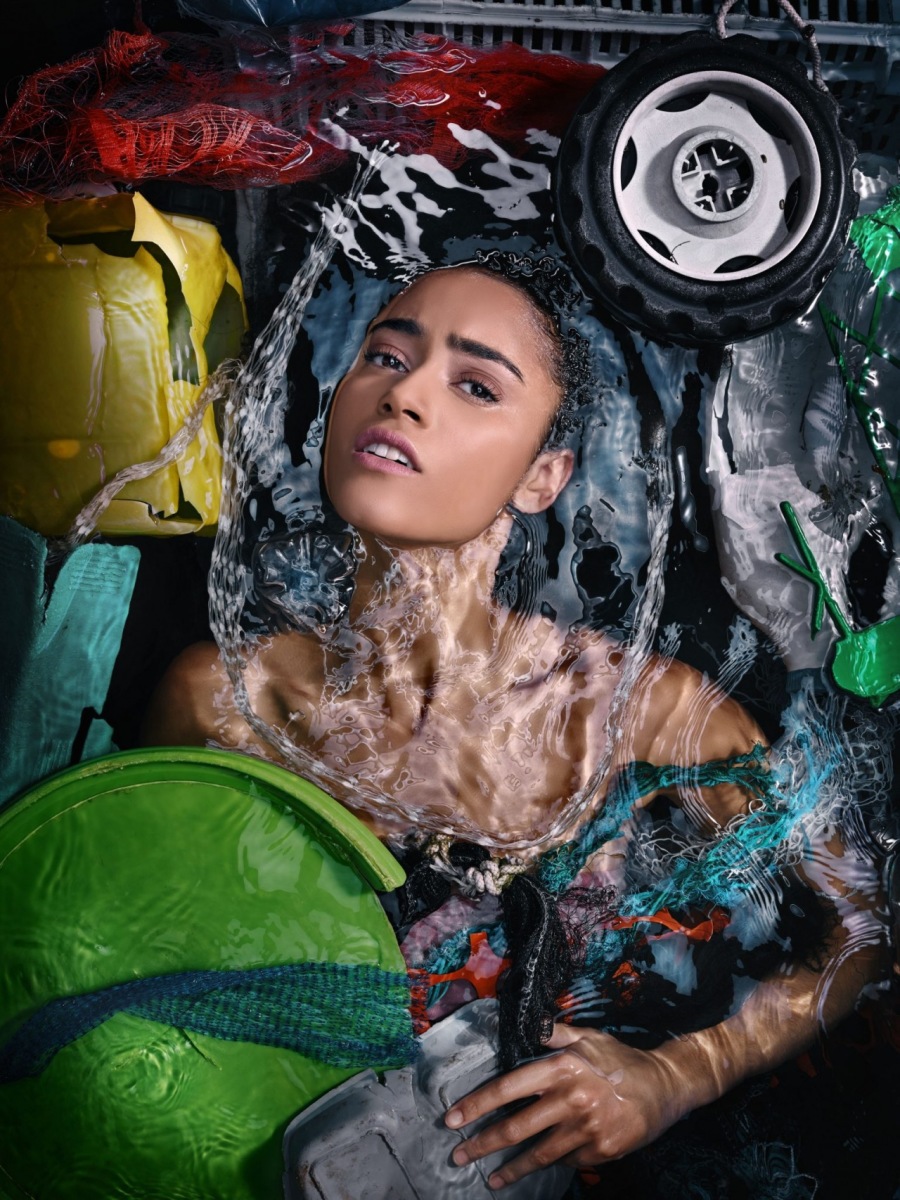
Photograph Credits

When not researching the weird or the wonderful, the comical or the cultured, the sinful or the serious, I chase my creative side, the results of which can be seen as selected photographs of my travels on my website at:
http://ken-boddie.squarespace.com
The author of the above, Ken Boddie, besides being a sometime poet and occasional writer, is an enthusiastic photographer, rarely leisure-travelling without his Canon, and loves to interact with other like-minded people with diverse interests.
Ken's three day work week (part time commitment) as a consulting engineer allows him to follow his photography interests, and to plan trips to an ever increasing list of countries and places of scenic beauty and cultural diversity.
in Engineering our Future and in 1 more group
Articles from Ken Boddie
View blog
In the context of teaching English, either as a foreign language (TEFL) or a second language (TESOL) ...

How an opportune afternoon, aimed at attuning a young mind to the good old Disney cartoons, turned i ...

The Japanese are seemingly working on a ‘ground-breaking’ solution to prevent earthquake damage to d ...
Related professionals
You may be interested in these jobs
-
Store Manager, Monee Ponds
4 days ago
Resmed Monee Ponds, VIC, AustraliaThe Store Manager is responsible for the effective operating, running and achievement to budget of their store/s through effective leadership and management of their teams and developing an exceptional customer centric culture. · ...
-
Apprentice - Toolmaker
1 month ago
Resmed SydneyWe have partnered with Apprenticeship Careers Australia to deliver an Apprenticeship Program focused on the Toolmaking and Machining skills required to manufacture highly-complex and challenging LSR Injection-mould tooling. · As an apprentice in toolmaking, you will get to learn ...
-
Assistant Store Manager
1 month ago
Pillow Talk Australia MelbourneJoin our team as Assistant Store Manager at Pillow Talk Fabric in Nunawading store. Partner with the Store Manager to lead the team and drive operational performance. Create personalized experiences for customers and employees alike. ...


Comments
Ken Boddie
4 years ago#34
#33
Thanks for your kind words, Sarah.
Sarah Cohen
4 years ago#33
Thinking of all the plastic that gets into the oceans, etc. makes me nauseous. I do my part as best I can. I do believe in the power of education. Thank you for being such a terrific educator.
Ken Boddie
5 years ago#32
Further to my #29 below, Joyce, I'm glad that the dolphins and humpback whales we see along the was and west coasts of Australia, do not have to traverse the Indian Ocean or, indeed the coastline of Indonesia through to China, as my above main 'culprits' map suggests.
Ken Boddie
5 years ago#31
Further to my #28 below, Joyce, I'm glad that the dolphins and humpback whales we see along the was and west coasts of Australia, do not have to traverse the Indian Ocean or, indeed the coastline of Indonesia through to China, as my above main 'culprits' map suggests.
Joyce 🐝 Bowen Brand Ambassador @ beBee
5 years ago#30
Agreed--I watched it again after I mentioned that and found much of it a sad commentary on humanity.
Ken Boddie
5 years ago#29
Thanks for the link, Joyce \ud83d\udc1d Bowen Brand Ambassador @ beBee, to a set of interesting videos. Following your good wishes, I 'enjoyed' the first video while viewing footage of pristine blue whales and dolphins, bringing back memories of my recent trip to Harvey Bay to see the humpbacks [https://www.bebee.com/producer/@ken-boddie/new-south-w-h-ales ], but the Indian Ocean gyre POP images at the end, and the follow-up videos, were more validatory of my concerns and the published work of other scientists than 'enjoyable'. I'll file this link away to view again in more depth (no pun intended) and at leisure. Cheers!
Joyce 🐝 Bowen Brand Ambassador @ beBee
5 years ago#28
Fay Vietmeier
5 years ago#27
Ken Boddie
5 years ago#26
Since you appear to be fond of biblical logic, Fay Vietmeier, not sure who should “cast the first stone”, as plastic polution is virtually endemic and most of us are doing it to some extent, either knowingly or otherwise. Perhaps the above 3 AMCS steps are a good starting point, unless you‘re volunteering to hop on a COVID defying plane to give Xi Jinping et al a piece of your mind? 🤗
Fay Vietmeier
5 years ago#25
Ken Boddie
5 years ago#24
#23 I could be wrong, Fay Vietmeier, but I get the impression that perhaps I’ve awoken in you a slight keenness on this topic.
Fay Vietmeier
5 years ago#23
Fay Vietmeier
5 years ago#22
Fay Vietmeier
5 years ago#21
Harvey Lloyd Multiplied thanks for that link WOW !! ** !! ** !! .. every 24 hours, these five rivers collectively push 413 elephants of plastic into the world's oceans .. NOTE: 3 of the 5 rivers are in China (the top 2 POLUTED rivers are in China)
Ken Boddie
5 years ago#20
Thanks, Robert. It’s a pity this wasn’t the theme for a crime fiction novel, instead of harsh reality, and then, between us, we might be able to concoct a happy ending.
Robert Cormack
5 years ago#19
Ken Boddie
5 years ago#18
Unfortunately, Lada \ud83c\udfe1 Prkic, our various systems of government, and the ease with which a chosen powerful few developers/industrialists can have overly representative access to and influence on our politicians, is, I believe, mostly to blame for exploitation and pollution, as I outlined in my #11. The only way forward is the voice of the people who vote. If the West doesn't get its act together, then how can we possibly sway the rest?
Lada 🏡 Prkic
5 years ago#17
Harvey Lloyd
5 years ago#16
I can only agree about sources. I sent that base solely on the fact i gathered several of these styled graphics from several sources myself. But as you stated it is difficult to understand the validity of any data these days. Thought the elephants were a bit challenging. My main reason for looking into this was i live on one of the larger rivers of the Cheasapeake Bay Area. I dont “see” the levels of plastic pollution and see the local efforts to keep the river clean. Thanks for bringing the attention to a growing issue.
Ken Boddie
5 years ago#15
Thanks for the link to another graphic display, Harvey, but it begs the question of how has this daily dose of plastic (well translated into elephant units) been estimated and ground-truthed. Irrespective, the numbers in your ESRI data-sourced map illustration appear to compare well with my above reproduced Plastic Pollution in Oceans map. The main reason (in the absence of source data) that I give credibility to such presentations is that the highest concentrations of plastic waste go hand in hand with regions of highest population and manufacturing. Nevertheless such maps initiate questions of how other mighty rivers in industrialised and heavily populated areas might compare, such as the Nile, Rhine, Mississipi and the Thames. The latter has been reported by the BBC as also being heavily plastic polluted but with no daily ‘elephant’ numbers. It’s hard to throw stones from our own western historical glass houses and shame rapidly developing countries of allegedly worst plastic pollution, unless such displays and their elephantile graphic proportions are readily linked to credible data and readily reproducible quantifying methodology. Much food for thought and further research here, Harvey. Again, many thanks.
Ken Boddie
5 years ago#14
Many thanks, Joyce. Sharing is caring. 😁
Harvey Lloyd
5 years ago#13
Joyce 🐝 Bowen Brand Ambassador @ beBee
5 years ago#12
By the way, Ken. I shared your article on both my website and one other. It was just too damned good. [And you know me--remaining silent has never been my thing...]
Ken Boddie
5 years ago#11
While western democracies, Joyce, continue to permit political donations from for-profit corporations, banning any major and financially industrial product or activity will only be considered if it becomes apparent that enough votes will otherwise be lost. Unfortunately, egalitarian democracies, which require that all people are treated equally, are a pipe dream and all too often play second fiddle to the voice of the industrial dollar. The worst we can do is remain individually silent, and, in so doing, uphold and propagate the problem of worldwide pollution. ☹️
Zacharias 🐝 Voulgaris
5 years ago#10
True. I don't see that happening any time soon though, since there are lots of financial interests based on plastic. Besides, they never outlawed other harmful substances, such as tar, even though they are known to have negative effects on people's health. If there is money to be made on a particular material, you can be certain it won't be outlawed...
Joyce 🐝 Bowen Brand Ambassador @ beBee
5 years ago#9
The big way governments can contribute is to outlaw plastic.
Joyce 🐝 Bowen Brand Ambassador @ beBee
5 years ago#8
The big way they can contribute is to outlaw plastic.
Ken Boddie
5 years ago#7
But the end-point clean-up, Zacharias \ud83d\udc1d Voulgaris, is only the downstream though perhaps more obvious end of the problem. As in the case of the air we breath, the water we drink and the climate we enjoy, the upstream end is where we need to focus. Prevention is better than the cure in the long term, and prevention requires the so called ‘developed’ countries to lead by example. If the voice of the people is loud enough, then governments will relent, despite the greed and influence of a few rogue industrial giants. .
Zacharias 🐝 Voulgaris
5 years ago#6
Ken Boddie
5 years ago#5
That might explain, Joyce \ud83d\udc1d Bowen Brand Ambassador @ beBee, why they're getting hard to find and expensive. Soon you'll have to buy the sheets individually and pay-per-towel. 😂🤣😂
Joyce 🐝 Bowen Brand Ambassador @ beBee
5 years ago#4
Joyce 🐝 Bowen Brand Ambassador @ beBee
5 years ago#3
You have me rolling in laughter. You seem to have pegged me to a T. People already beg others not to send, "That Woman..." I mean--Moi?
Ken Boddie
5 years ago#2
Thanks, Joyce \ud83d\udc1d Bowen Brand Ambassador @ beBee for your encouraging response in your inimitable “take no prisoners” fashion. Perhaps another form of discouragement might be to threaten to let you loose on single use plastic repeat offenders. 😂🤣😂
Joyce 🐝 Bowen Brand Ambassador @ beBee
5 years ago#1